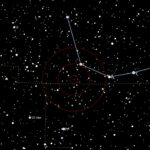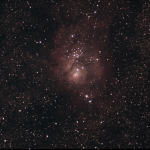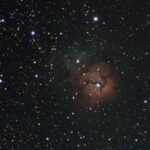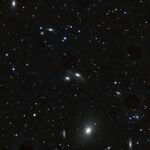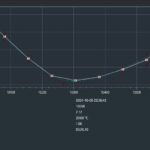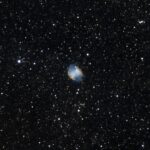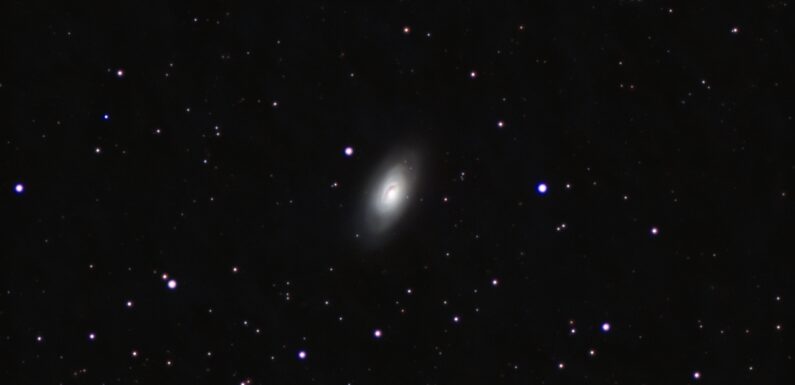
Mostly clear, highs in the upper 60s, and a light breeze. A nice night even with a very bright 91% Waxing Full Moon. Despite the Moon I really wanted to capture some light. 06/19 is a holiday, so I could stay up and tinker a bit later than usual on a school night. I set up a NINA sequence to collect a bit of light from the recurring nova T CrB and then from Messier 64, the Black Eye Galaxy. Even with the nearly full Moon I had some good success and nice results.
I started cooling the camera before dark with the scope still covered. I did have some issues with frost on the sensor, so I only cooled to -5 C. I probably need to dry out the desiccant tablets. Once the camera was cooled, with no frost on the glass, I shot a set of 120 second darks. Just after dark I did the initial polar alignment and initial autofocus. Then kicked off the NINA sequence to capture T CrB and M 64 just after 10 PM.
| Primary (Imaging) | Secondary (Guiding) |
|---|---|
| Scope: SVBONY SV503 102ED Reducer/Flattener: UA 1.0x Flattener (~700mm – F/7) Filter: None Camera: ZWO ASI294 MC Pro, Cooled to -5 C Focuser: ZWO EAF Mount: Sky Watcher EQ6-R Pro |
Scope: SVBONY SV106 60mm Guide Scope Camera: Orion Star Shooter Autoguider (OSSAG) |
| Telescope Control, Image Acquisition, and Image Processing Software | |
|
Equipment Control and Imaging Software: NINA/PHD2/ASCOM on a Mini-PC Processing Software: GraXpert, Siril astronomical image processing tool, Siril’s Interactive Companion (Sirilic) |
|
The sequence started with capturing some light from the recurring nova T Coronae Borealis (T CrB), the Blaze Star, a recurring nova in the constellation Corona Borealis. I set up the sequence to capture 30 minutes of photons from it. Ended up with 2 bad frames due to some guiding issues, but 26 minutes of good data is plenty to document and compare current magnitude. Stacked with Sirilic, Background Extraction and Denoising with GraXpert, final processing with Siril. This is the processed stack of 13 x 120 second exposures at 121 gain, 30 offset, and bin 2×2.
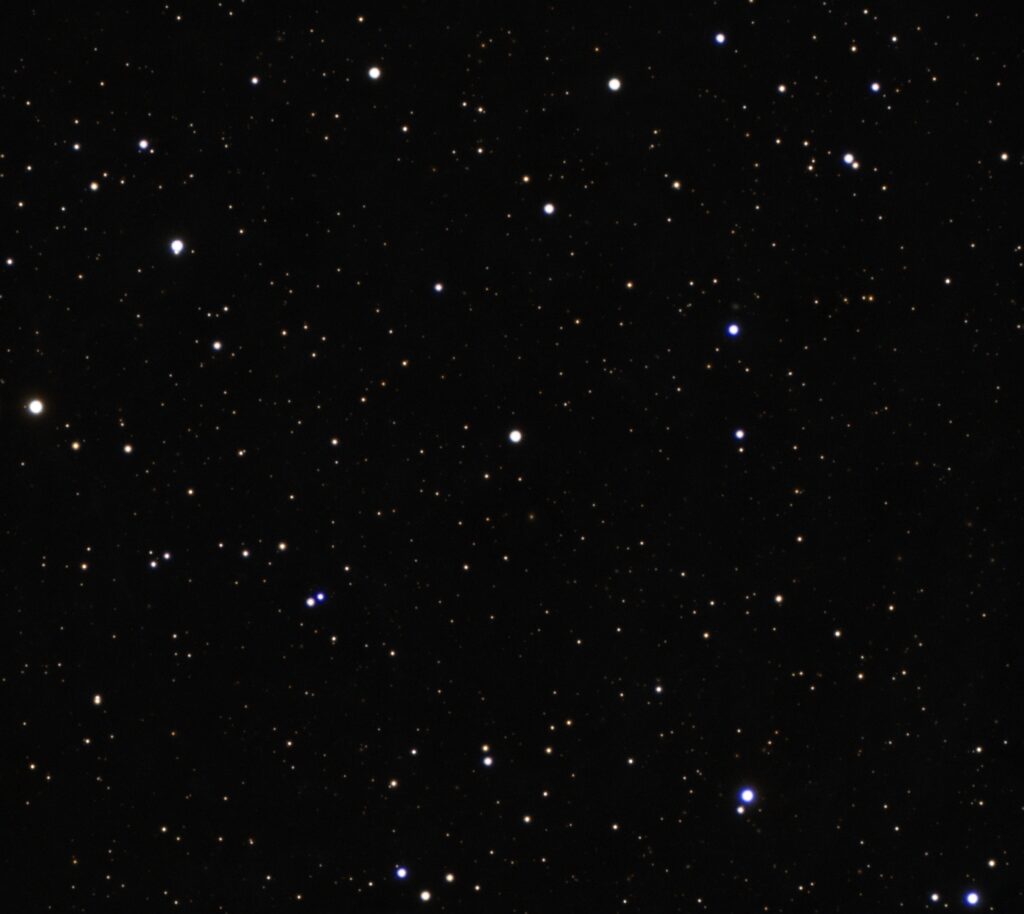
T Coronae Borealis (T CrB) is the star in the middle of the field of view. I don’t see any difference in magnitude from the last image I took on 06/07/2024, no nova yet. Will keep collecting a bit of light from it here and there maybe I’ll get lucky and it will blow up to mag 2 or so.
The next target in the sequence was Messier 64 (M64), the Black Eye Galaxy, a spiral galaxy located in the constellation Coma Berenices. Stacked with Sirilic, Background Extraction and Denoising with GraXpert, final processing with Siril. This is the processed stack of 60 x 120 second exposures at 121 gain, 30 offset, and bin 2×2.
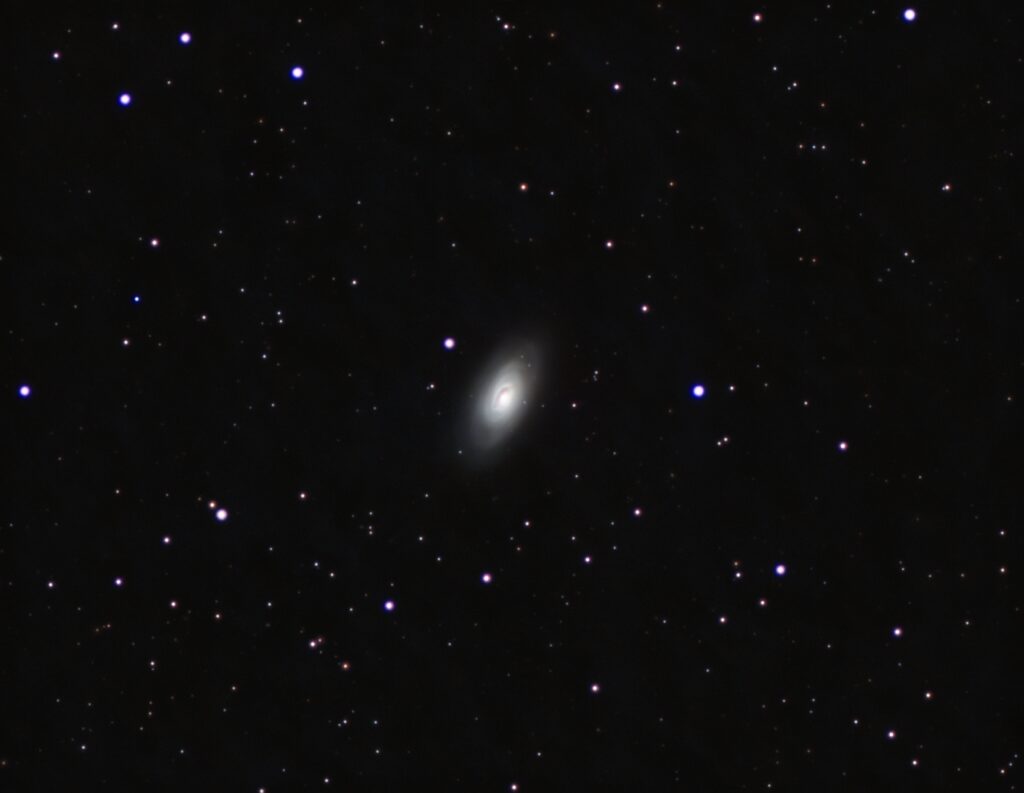
Bit of dark detail showing the black eye. I like the look of this one. Zoom in a bit and some of the other dark dusty details are visible.
While the NINA sequence was running I was practicing a bit of EAA using the SeeStar, ended up with some neat captures. I packed things in just after 1 AM. Overall a productive and very enjoyable night. Clear skies…


